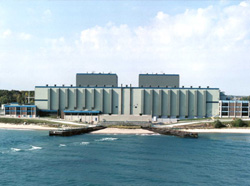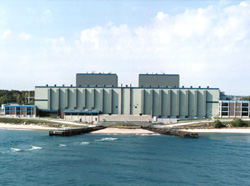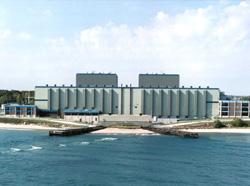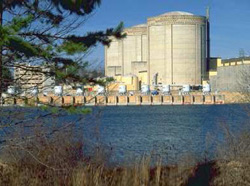Dear Friends and Colleagues,
As Physicians for Social Responsibility Wisconsin has posted, regarding the Point Beach Units 1 & 2 nuclear power plant on WI's Lake Michigan shore:
Here is a link to the host, U.S. Nuclear Regulatory Commission's (NRC) meeting information:
At PSR WI's website linked above, you can learn more information and history, and see how to take action/get involved, including tomorrow's online public meetings, at which verbal comments can be submitted. Tips for preparing DEIS comments are also provided.
But written comments can be submitted up until the Jan. 3, 2022 deadline. Please see the PSR WI website for the various ways that written public comments can be submitted:
For additional ideas for public comments you can make, see this Beyond Nuclear website post re: the PSR WI legal intervention in the U.S. Nuclear Regulatory Commission Atomic Safety and Licensing Board supplemental license extension (out to 80 years) proceeding:
Toledo, Ohio-based attorney Terry Lodge serves as PSR WI's legal counsel. PSR WI's expert witnesses include: nuclear engineer Arnie Gundersen of Fairewinds; emeritus professor Dr. Al Compaan of the University of Toledo; and energy economist Dr. Mark Cooper of Vermont Law School.
For more information on NRC's high-risk rubber-stamps of reactor operating license extensions, including most recently the ones at Point Beach, see:
So far, NRC has rubber-stamped 80-year operating license extensions for 9 of the 93 still operating reactors in the U.S.
6 additional reactors -- including Point Beach Units 1 & 2 -- have applied for 80-year licenses from NRC. See:
(Note that almost every single one of the 93 still operating reactors in the U.S. have already gotten their 60-year operating license rubber-stamped by NRC:
Point Beach Unit 2 has the dubious distinction, that once Palisades in Michigan (also on the Lake Michigan shore) shuts down for good by May 31, 2022, it will be the single worst neutron-embrittled reactor pressure vessel in the U.S., at risk of through-wall fracture, and consequent reactor core meltdown. Expert witness Arnie Gundersen provided testimony re: the embrittlement risks at Point Beach, and one of the contentions prepared by attorney Terry Lodge -- linked above -- focused on embrittlement risks at Point Beach, if it is allowed to operate for 80 years.
Beyond Nuclear has intervened numerous times since 2007 re: embrittlement risks at Palisades in Michigan, with lessons learned that can be applied at Point Beach in Wisconsin, as well as at scores of other vulnerable, age-degraded pressurized water reactors still operating in the U.S. See:
Reactor pressure vessel embrittlement is a pathway to catastrophic core meltdown. As
CRAC-II -- a 1982 NRC-commissioned, Sandia National Lab-conducted report -- shows, a meltdown at Point Beach Unit 2 could result in:
Up to 2,000 peak early fatalities (acute radiation poisoning deaths); 9,000 peak early radiation injuries; 7,000 peak cancer deaths (latent cancer fatalities); and $41.4 billion in property damage.
(CRAC-II is short for Calculation of Reactor Accident Consequences. The report is most often referred to as the CRAC-II report because that is the name of the computer program used in the calculations, but the report is also known more officially as the 1982 Sandia Siting Study or as NUREG/CR-2239. NRC attempted to cover up the CRAC-II's horrific casualty and property damage figures, but longtime nuclear power watchdog, U.S. Rep. (now U.S. Senator) Ed Markey, a Massachusetts Democrat, outed them via congressional hearings.)
However, the Fukushima Daiichi nuclear catastrophe in Japan has shown that domino effect meltdowns are possible; if Point Beach Unit 1 were to also melt down, due to a meltdown at the adjacent Unit 2, then casualties and property damage would be doubled.
But CRAC-II's figures don't account for economic development around Point Beach from 1982 to the present. It is also far from clear that impacts on the Great Lakes drinking water supply for 40 million people in 7 downstream U.S states, 2 downstream Canadian provinces, and a large number of downstream Native American First Nations, were adequately accounted for, if at all.
But adjusting for inflation alone, from 1982 dollar figures to 2020 dollar figures, property damage from a meltdown at Point Beach Unit 2 would now surpass $112.5 billion.
And as AP investigative reporter Jeff Donn reported in mid-2011, populations have soared around Point Beach since 1982 (see Part III), so post-meltdown casualty figures would now be much worse. Donn also cited embrittlement as the top example of NRC regulatory retreat (see Part I):
Please take action -- by submitting verbal comments tomorrow, and/or written comments by Jan. 3rd -- and please spread the word! Thanks!
---Kevin Kamps, Beyond Nuclear and Don't Waste Michigan
 January 4, 2022
January 4, 2022  NextEra's Point Beach Units 1 & 2 nuclear power plant on WI's Lake Michigan shoreJanuary 3, 2022
NextEra's Point Beach Units 1 & 2 nuclear power plant on WI's Lake Michigan shoreJanuary 3, 2022 admin | Comments Off |
admin | Comments Off | 






